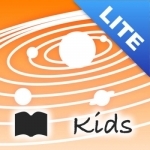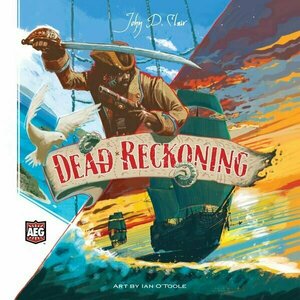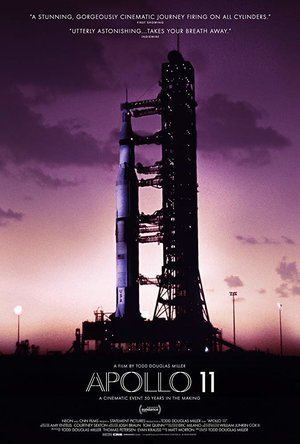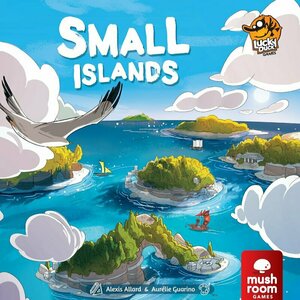Phil Leader (619 KP) rated Universe: Awakening (Terra Nova #1) in Books
Nov 27, 2019
Fast forward 100 years. The probes sent out by DEUS have gone dark one by one, sending potentially troubling data before they do so. Ja'el is showing signs of improvement to his counsellor Auberon. With the real danger that the perceived success of DEUS - the basis of her power - may unravel Odessa brings Auberon under her control to manage Ja'el's recovery.
The rest of the book follows Auberon's (and his assigned Guardians, Mich'ael and Gab'riel) as they realise that there may be a personal motive in Odessa's desire to see Ja'el rehabilited, and that they may be 'surplus to requirements' once he is.
Overttun aims high with this book; there are a lot of concepts around not only technology but future society and political attitudes. There is also a subplot around the more advanced ruling class and the far more numerous worker humans which is used to good effect to highlight social injustices of all kinds. On whole the premise is delivered well, although there are a few lengthy exposition passages, particularly early in the book, which do spoil the flow and are probably not actually required.
What is striking is the character development. All the main characters learn some lessons along the way, Auberon in particular discovering that far from being a meek and unassuming mid-rank civil servant is capable of far more, both mentally and physically, than he ever thought possible. His metaphorical awakening mirrors nicely Ja'el's rather more literal awakening.
As the first part of an intended series of books, this volume necessarily does a lot of work setting up the characters and situations and leaves a lot of threads hanging to be picked up later but there is closure around the main plots and character arcs within this part of the story.
Although this is going to be labelled as a science fiction novel because of the post-human, technological and space exploration aspects at its heart it is a political thriller. Given this and that it is chock full of interesting ideas it bears careful reading without any preconceived expectations. But above all this is an interesting read following a set of well-designed characters in a fully developed world.
With its length and depth this is not a light read but the writing style is straighforward and clear whilst still being fully descriptive and immersive which makes it a pleasure to pick it up and see what Auberon and associates will do next.
The characters and the world they inhabit are something the author is clearly proud of - and he is right to be. This first instalment bodes well for the rest of the series.

Pepi Super Stores
Education and Games
App
Welcome to Pepi Super Stores — the most amazing stores on the planet! Join our characters and...

Interactive Minds: Solar System - Lite
Education and Book
App
The perfect way for kids to experience the Solar System in a hands-on way! This interactive science...

Co-Operative Control of Multi-Agent Systems: Theory and Applications
Eloy Garcia, Yue Wang, David Casbeer and Fumin Zhang
Book
A comprehensive review of the state of the art in the control of multi-agent systems theory and...

Dead Reckoning
Tabletop Game
Dead Reckoning is a game of exploration, piracy, and influence based in a Caribbean-esque setting....
Emma @ The Movies (1786 KP) rated Apollo 11 (2019) in Movies
Apr 7, 2020
Space documentaries are always interesting, to think that all of that technology was really in its infancy and we were making such big strides for humanity is mindblowing... and that's why this felt like a letdown.
It's wonderful that we're getting this unseen footage but they've turned it into a film, it's not really a documentary at all. In a documentary I expect to learn things I didn't know before, but here while I was seeing things I'd never seen it's actually not showing you a new angle on the story. It's great to see everything evolving as it did on the day and through the journey but that isn't new. With such a rich story of science and discovery behind space exploration I am at a loss as to why they would forego having a narrator.
Having a narrator adds an extra layer of information that really does add something and makes the footage accessible to new viewers. I've seen documentaries on things like this before and so some of what I was seeing on screen was recognisable, but there were still some shots where I didn't know what I was looking at. Some prompting would have been useful, it was like walking through a museum where they've taken down the labels on the exhibits.
The footage is generally well edited throughout, and as I said before, the feel is that of a film as opposed to a documentary. They're compiled picture, audio and video images together to follow the crew on and above the Earth and the fact they can line it up so well is impressive. There's a montage as the crew return to Earth and this was particularly good when paired with "Mother Country" by John Stewart.
Putting the footage together can't have been an easy task, but some of it suffered for the sake of a shot. At one point we get a slightly out of place split screen "Go" sequence which showed all the departments calling out. I liked it as an idea but the audio isn't the best quality as it carries through, and after the initial effect it's difficult to understand what's going on and that detracts from some of the impact.
I appreciate the fact they dug into the archives for everything, the studio even used their 1969 logo, and crafting music that would have been possible then was impressive... even if a lot of it wasn't as inspiring as the moments it accompanied.
While Apollo 11 itself is a mindblowing event the way this "documentary" has been produced is not. Well crafted, yes, but its lack of further detail and background had a heavy negative impact for me. If I was rating just for the event then it would absolutely be a 5 star review, as a newly produced bit of work it doesn't bring anything new to the table even with it all being new footage.
Originally posted on: https://emmaatthemovies.blogspot.com/2020/04/apollo-11-movie-review.html

The Krio of West Africa: Islam, Culture, Creolization, and Colonialism in the Nineteenth Century
Book
"The Krio of West Africa: Islam, Culture, Creolization, and Colonialism in the Nineteenth Century,...
Gareth von Kallenbach (980 KP) rated Ad Astra (2019) in Movies
Sep 16, 2019
Ad Astra features Brad Pitt as Astronaut Roy McBride, a film that takes place in the not so distant future where the moon has become a commercialized tourist destination. A place where outside the safe tourist zones corporations fight for control of resources, and convoys are regularly ransacked by pirates looking to make a quick buck off the wares they are able to obtain. Mars has become a staging location for deep exploration ships hoping to discover if intelligent life exists outside our solar system.
Strange power surges begin to emanate deep within the galaxy, threatening to destroy everything in their path (Earth not excluded) and the top scientist are brought together to identify the threat and propose a theory to stop it. Roy McBride after suffering a near fatal fall from aboard a space station is brought into a top-secret meeting to discuss these surges. It is in this meeting that Roy is informed that the surges appear to be manifesting near Neptune and even more interestingly they are identified as anti-matter surges that are being generated from a ship that Roy’s father Clifford (Tommy Lee Jones) was in charge of nearly 29 years ago. The mission was a search for extra terrestrial life that Clifford was overseeing and presumed dead after Earth had lost contact with his ship. Roy must put his personal feelings aside regarding his father and must travel to the outer reaches of our solar system to put a stop to the surges, in any way possible.
Ad Astra is an incredible achievement in cinematography. The visions of the moon, mars and the numerous rockets taken to get there are spectacular. Much like the Grand Canyon film I spoke of earlier, in IMAX Ad Astra gives you a front row seat exploring the solar system as we know it. It takes a realistic approach while not bogging the viewers in all the technical details that would be necessary to achieve this flight. You would be doing yourself a disservice to see this film on any but the largest of movie screens. While it might be an acceptable experience in a normal theater, much of the grandiose vistas and beautiful sets would be wasted. This is not a movie to wait for on Netflix if you have any interest in seeing it at all.
From a story perspective, there isn’t a whole lot to tell. Brad Pitt brings his amazing acting abilities to a film that features more inner dialogue to himself, then to others on the screen. It is reminiscent to the original Dune movie from the 80s combined with 2001: A space odyssey. For a movie that literally is about a voyage to deep space, there are some scenes sprinkled throughout that provide some action and even a bit of suspense. Supporting characters such as Tommy Lee Jones and Donald Sutherland provide outstanding performances, even if their screen time is extremely limited. Liv Tyler once again reprises a role similar to the one from Armageddon as the reluctant wife of a man who is tasked with saving the world.
Ad Astra is a cinematic experience, the story alone is passable if not particularly quick moving and at time rarely engaging. However, when you combine this with the technological wizardry used to bring the Solar System to life it makes for an adventure that certainly lives up to the hype and will delight your visual senses. If you’ve ever dreamed of what it would be like to live on the moon or adventure into the stars, then Ad Astra might just be the closest we ever get in our lifetime. It’s beautiful, deadly and overall an achievement to behold, just make sure you see it on the biggest screen you can.
4 out of 5 stars
Purple Phoenix Games (2266 KP) rated Small Islands in Tabletop Games
Oct 13, 2021
Small Islands is a tile placement exploration game for one to four players. In it, players are explorers tasked with discovering resource-rich new islands upon which their clans may either exploit or inhabit. However, it’s each clan for themselves, and the players all need those precious resources. In the solo game, the player’s AI opponent is Alexis Allard, designer of the game. He has goal cards to be used and finishing point totals that the solo player will be attempting to beat during the course of the game.
DISCLAIMER: We were provided a copy of this game for the purposes of this review. This is a retail copy of the game, so what you see in these photos is exactly what would be received in your box. I do not intend to cover every single rule included in the rulebook, but will describe the overall game flow and major rule set so that our readers may get a sense of how the game plays. For more in depth rules, you may purchase a copy online or from your FLGS. -T
To setup, the player claims their player color and assigns Alexis with his color. They take all the components for each player and places them on the table. The starting tiles (that feature flying seagulls) are placed on the table in any orientation that is legal for play: islands need to connect, and seas need to flow from one tile to the next, as seen below. The Landscape tiles are to be shuffled and placed within reach. The four ship tiles are displayed, with all ships on their gray side, save for the solo player’s chosen color. The Navigation tile is placed below the ship tiles, and the beginning three Landscape tiles are placed in a row beside it. The small stack of Objective cards are shuffled and placed nearby, with the player drawing one to begin. They also draw two Landscape to start. For solo play, one Alexis difficulty card is chosen, and his deck of Explore and Land cards is built accordingly. The Prestige (VP) tokens are (apparently when I play) just thrown on the table and gathered in a loose pile. The game may now begin!
Small Islands is played over four rounds, with several turns being played per round. The solo player begins each round with their turn. A turn is divided into three phases: Preparation, Exploration, Reward. The Preparation phase has the player populating the Navigation Tile with six Landscape tiles face-down as a draw stack. The player then draws two Objective cards to add to their one they are currently holding. From these three cards the player will choose one to become their current objective for the round, one to be saved for a future round, and one to be discarded back to the stack. These Objective cards provide a strategy to guide the player through the current round, and also setup future rounds for scoring purposes. Upon them are icons that will award the player with points for scoring islands containing specific combinations of resources.
During the Exploration phase in the solo game, the player takes their turn first, and then Alexis will take his. A typical Exploration phase has a player deciding if they will Explore a tile or Land a ship. To Explore a tile, the player chooses one of the face-up Landscape tiles from the market/offer row and, along with their two held tiles, choose one to add to the play area. These tiles may be rotated in any fashion, as long as they can be legally placed: island edges are to be extended, sea spaces connected, et al. It is also at this time the player may place one of their Bonus Tokens upon any tile on the play area. These Bonus Tokens are resource icons that cover up existing icons on a tile, or directly over another Bonus Token. A player would do this in order to affect the balance of icons on a given island for scoring purposes.
Should the Navigation tile be empty of Landscape tiles and the player wish, they may instead Land a ship, thus ending the Exploration phase. The player chooses any of the ship tiles, and places it legally on the play area (in a sea space, as shown below). Once the player ends the phase, the game progresses to the Reward phase.
After the player takes their turn during the Exploration phase, Alexis takes his turn. This is done by drawing an Expedition card from his stack and following its instructions. The Expedition card will show whether Alexis would like to Explore or Land, which Landscape tile he would like to draw, and where he would like to place it – in relation to where the last player tile was placed.
During the Reward phase, the player will place any of their clan houseeples they wish on any island upon which they have not placed a houseeple previously. Then, consulting their Objective card, score points for successfully satisfying the card’s requirements. For Alexis, the player will draw a new Expedition card from Alexis’s stack, note the icons present on the Mission area of the card, and place Alexis houseeples upon islands that satisfy its requirements.
The game continues in this fashion until the fourth round is complete. The player totals their Prestige points (VP) and if they score more than Alexis, they win! The player must then take a picture of their archipelago they built and send it to the designer directly and gloat to them about their massive victory. Or simply rest in the satisfaction of having played the game well. Whichever.
Components. This game has a lot of components, and they are mostly cardboard and houseeples. The cardstock and board are good quality, as I have come to expect from Lucky Duck Games, and the houseeples are all different shapes for each clan color. I find that a nice and unnecessary, but very cool, touch. The art in this one is simply amazing. I mean, look at these photos! Everything from the color scheme to the art style all mesh well and give a well-considered polish to a great theme.
Okay, I won’t even hide it – I LOOOOOOVE this game. I never really liked Carcassonne very much, but Small Islands gives a similar feel, but executes everything so much better. Even with the solo rules. There are so many options available at any one time, and having a random Alexis game each time you play is just so satisfying. I feel like I could keep this game forever and not play the same game twice. Ever. And I think that I would WANT to play this one forever. Yes, I think this is a solid fit for my collection indeed, and I can see it working for so many different gamer types.
Having Alexis constantly applying the pressure to maximize and strategize every turn is delicious, and having almost zero conflict with him as we both explore is welcome. You know when you start the game how many points Alexis will score at the end of the game, so having that knowledge really makes you consider all the options available. It just works on so many levels.
If you are looking for a light-hearted, but with some great decisions to be made, then I strongly urge you to check out Small Islands. I knew immediately that this was a game for me. It’s on the lighter side without being too simple, I get to build a thing and admire it at the end of the game, and I have an opponent who just wants to see me win because he designed the game! I’m in and out in less than an hour and feel content that I was able to have a great experience with a well-designed game. I cannot wait to introduce this to all my friends and family gamers so they can fall in love with it as well.

Back in Time
Education and Book
App
• "The coolest history textbook you’ll find on the iPad" - The New York Times • Winner of the...



